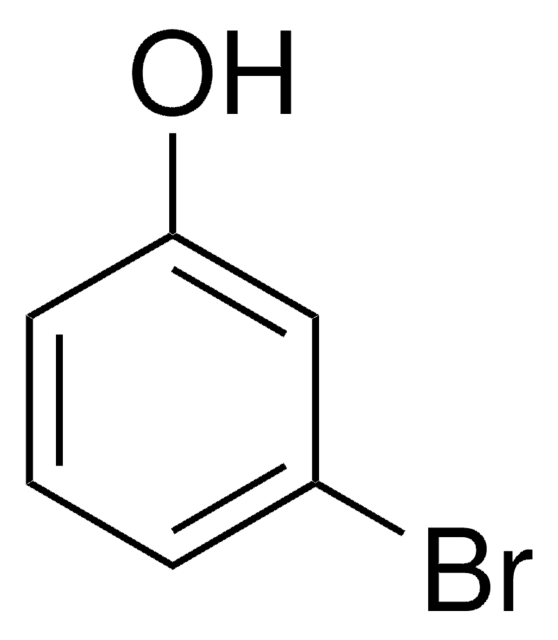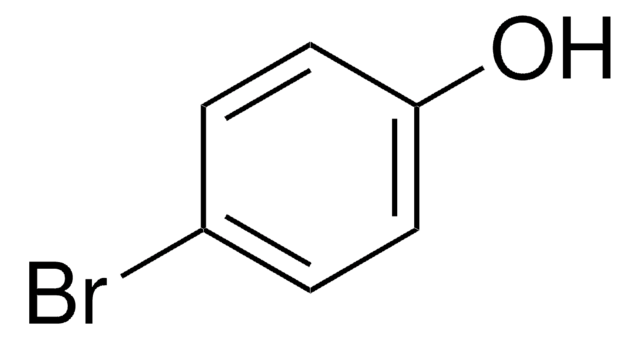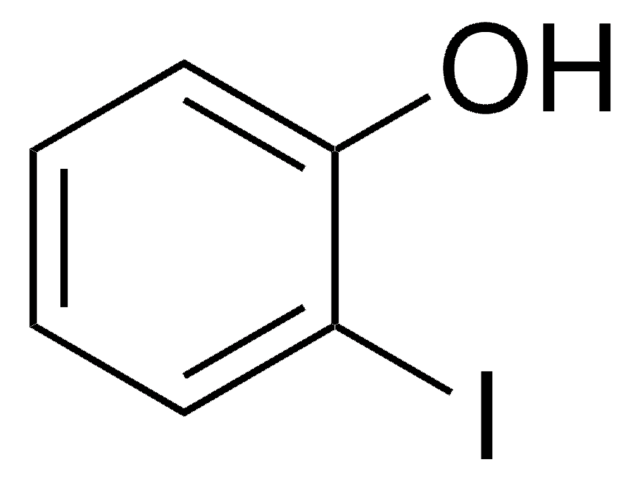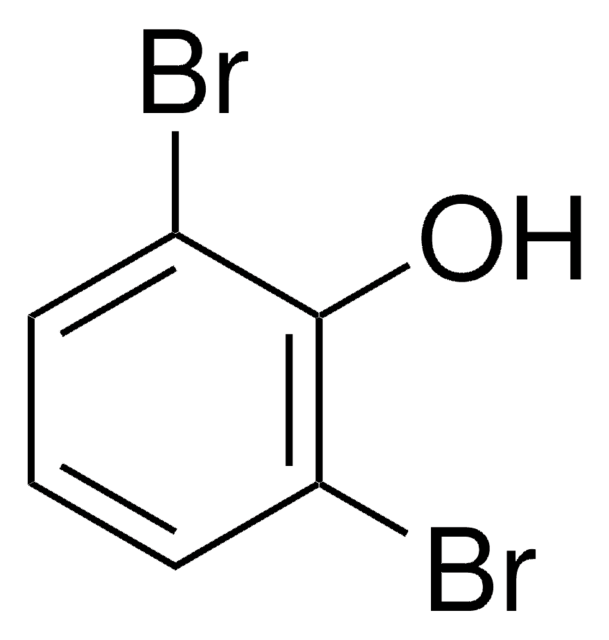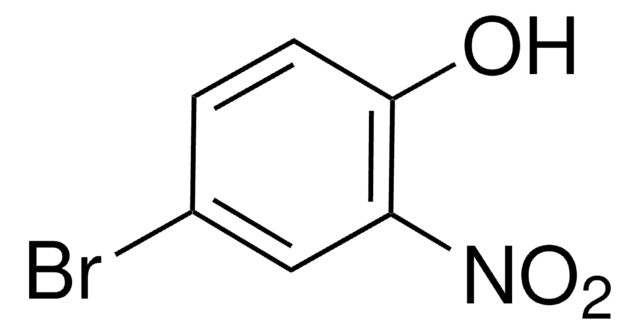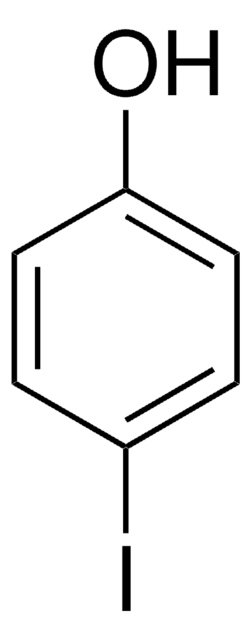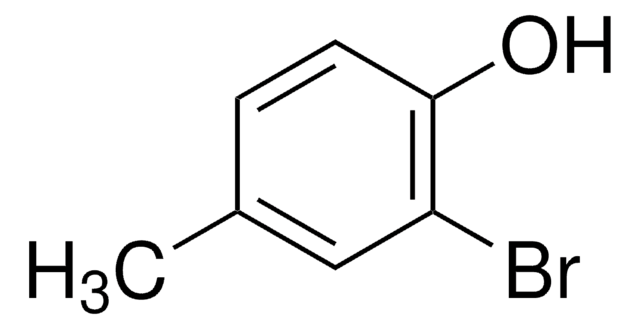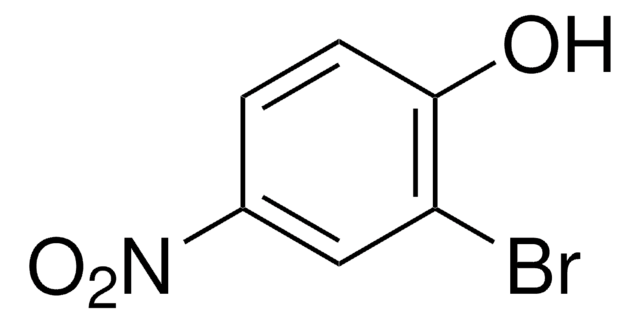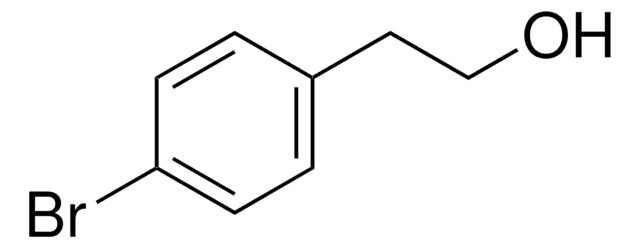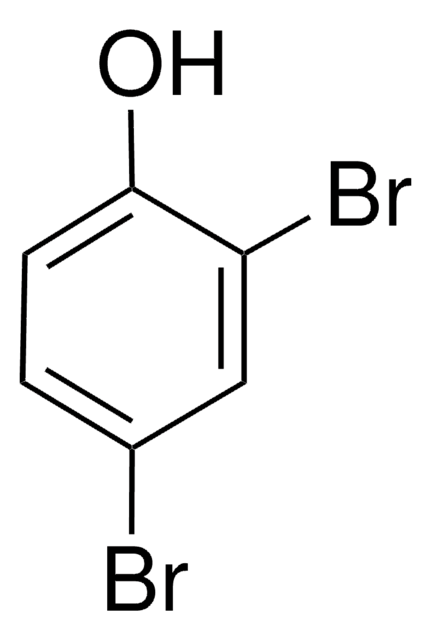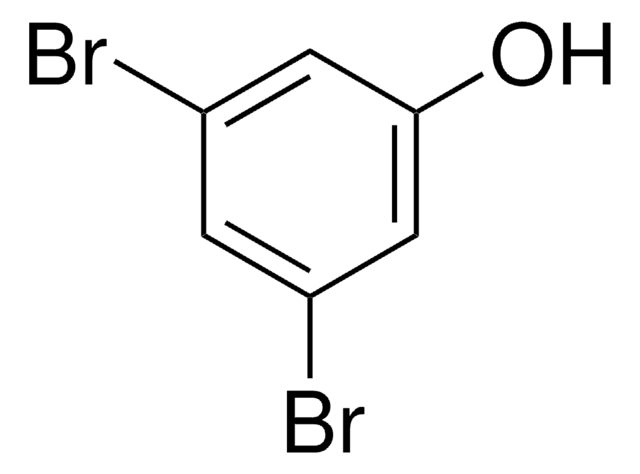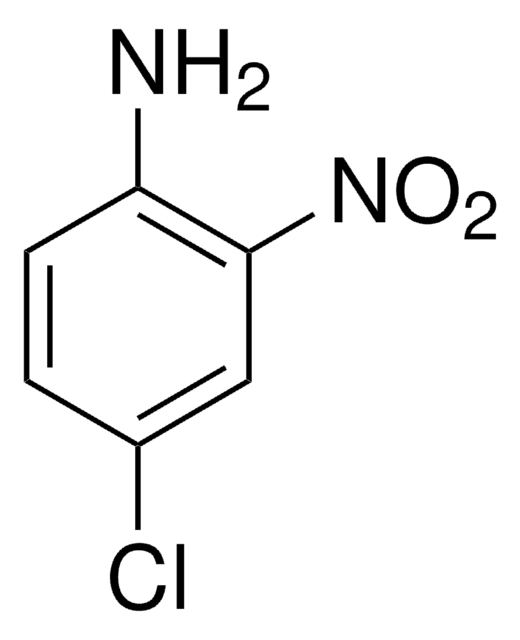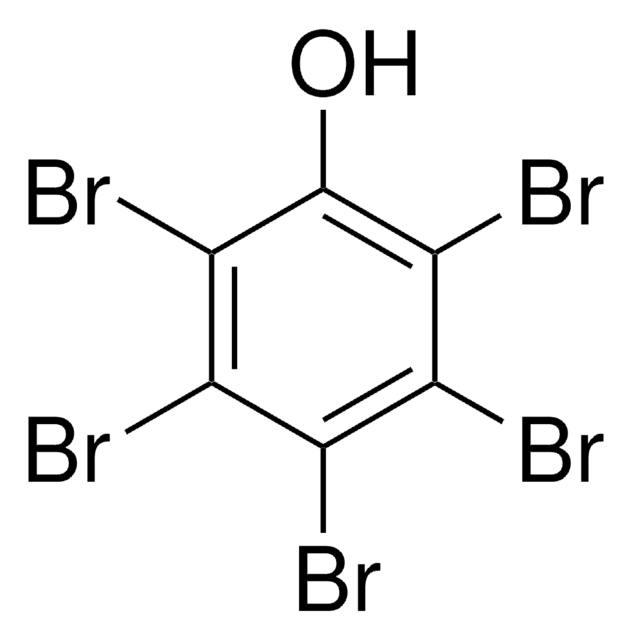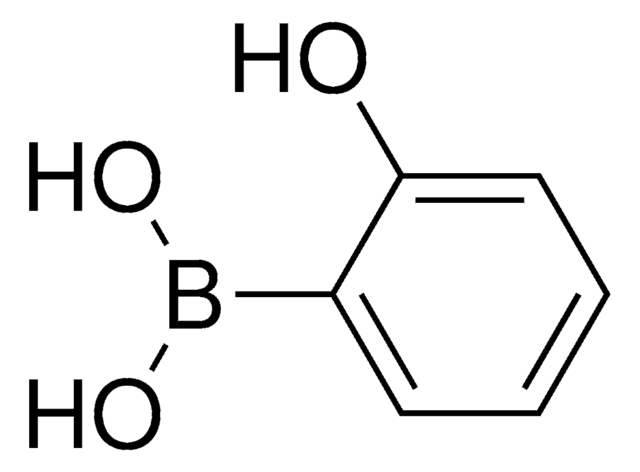About This Item
Recommended Products
Quality Level
Assay
98%
form
liquid
refractive index
n20/D 1.589 (lit.)
bp
195 °C (lit.)
mp
3-7 °C (lit.)
density
1.492 g/mL at 25 °C (lit.)
1.6235 g/mL at 25 °C
functional group
bromo
SMILES string
Oc1ccccc1Br
InChI
1S/C6H5BrO/c7-5-3-1-2-4-6(5)8/h1-4,8H
InChI key
VADKRMSMGWJZCF-UHFFFAOYSA-N
Gene Information
human ... ALOX12(239) , ALOX15(246)
Looking for similar products? Visit Product Comparison Guide
Related Categories
Application
Signal Word
Warning
Hazard Statements
Precautionary Statements
Hazard Classifications
Acute Tox. 4 Oral - Aquatic Acute 1 - Eye Irrit. 2 - Flam. Liq. 3 - Skin Irrit. 2 - STOT SE 3
Target Organs
Respiratory system
Storage Class Code
3 - Flammable liquids
WGK
WGK 3
Flash Point(F)
107.6 °F - closed cup
Flash Point(C)
42 °C - closed cup
Personal Protective Equipment
Regulatory Listings
Regulatory Listings are mainly provided for chemical products. Only limited information can be provided here for non-chemical products. No entry means none of the components are listed. It is the user’s obligation to ensure the safe and legal use of the product.
FSL
Group 4: Flammable liquids
Type 2 petroleums
Hazardous rank III
Water insoluble liquid
ISHL Indicated Name
Substances Subject to be Indicated Names
ISHL Notified Names
Substances Subject to be Notified Names
JAN Code
130915-10G:
130915-BULK:
130915-50G:
130915-1G:
130915-500G:
130915-VAR:
130915-1KG:
Choose from one of the most recent versions:
Already Own This Product?
Find documentation for the products that you have recently purchased in the Document Library.
Customers Also Viewed
Articles
Separation of 2-Chlorophenol; 2,4-Dichlorophenol; 2,4,6-Tribromophenol; 2,4,6-Trichlorophenol; 2,4-Dinitrophenol; Pentafluorophenol; 2-Methylphenol, analytical standard; 2,3,4,6-Tetrachlorophenol; Pentachlorophenol; 4-Nitrophenol; 2-Bromophenol; 2,3,5,6-Tetrachlorophenol; 2,3,5-Trichlorophenol; 4-Chloro-3-methylphenol; 2,4,5-Trichlorophenol; 4-Methylphenol, analytical standard; 2,4-Dimethylphenol; 2-Nitrophenol; 3-Methylphenol, analytical standard; Phenol; 2-Methyl-4,6-dinitrophenol; 2,3,4-Trichlorophenol; 2,6-Dichlorophenol; 2,3,4,5-Tetrachlorophenol
Protocols
Separation of 2-Nitrophenol; Pentachlorophenol; 2-Bromophenol; Phenol; 4-Nitrophenol; 3-Methylphenol, analytical standard; 4-Chloro-3-methylphenol; 2,4-Dichlorophenol; 2,3,4,6-Tetrachlorophenol; 2-Methylphenol, analytical standard; 2,4,6-Trichlorophenol; 2,4-Dimethylphenol; 2-Chlorophenol
Our team of scientists has experience in all areas of research including Life Science, Material Science, Chemical Synthesis, Chromatography, Analytical and many others.
Contact Technical Service